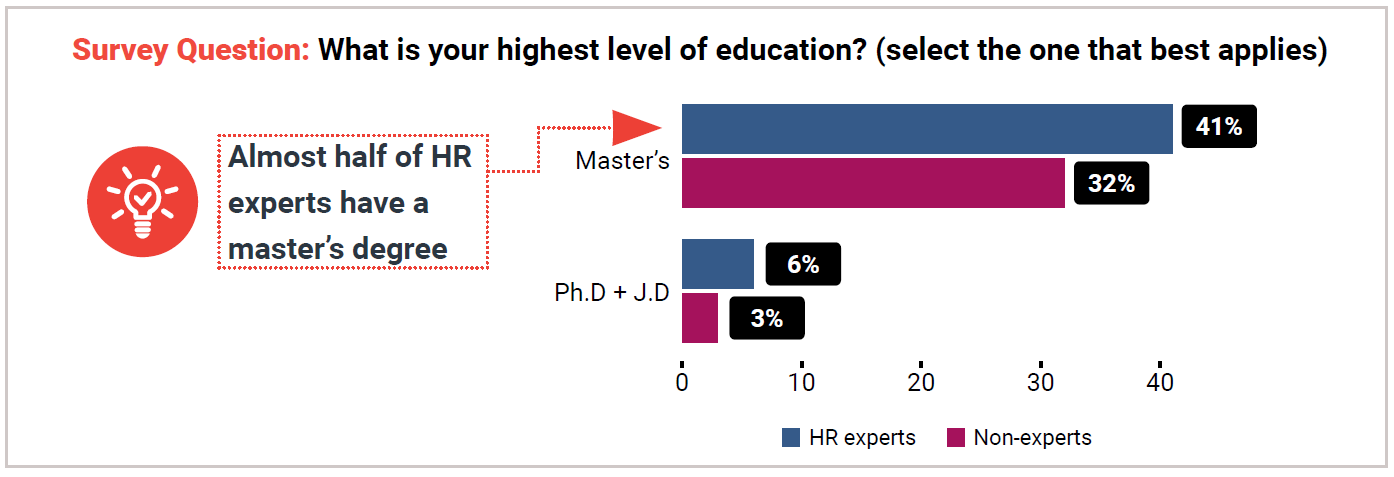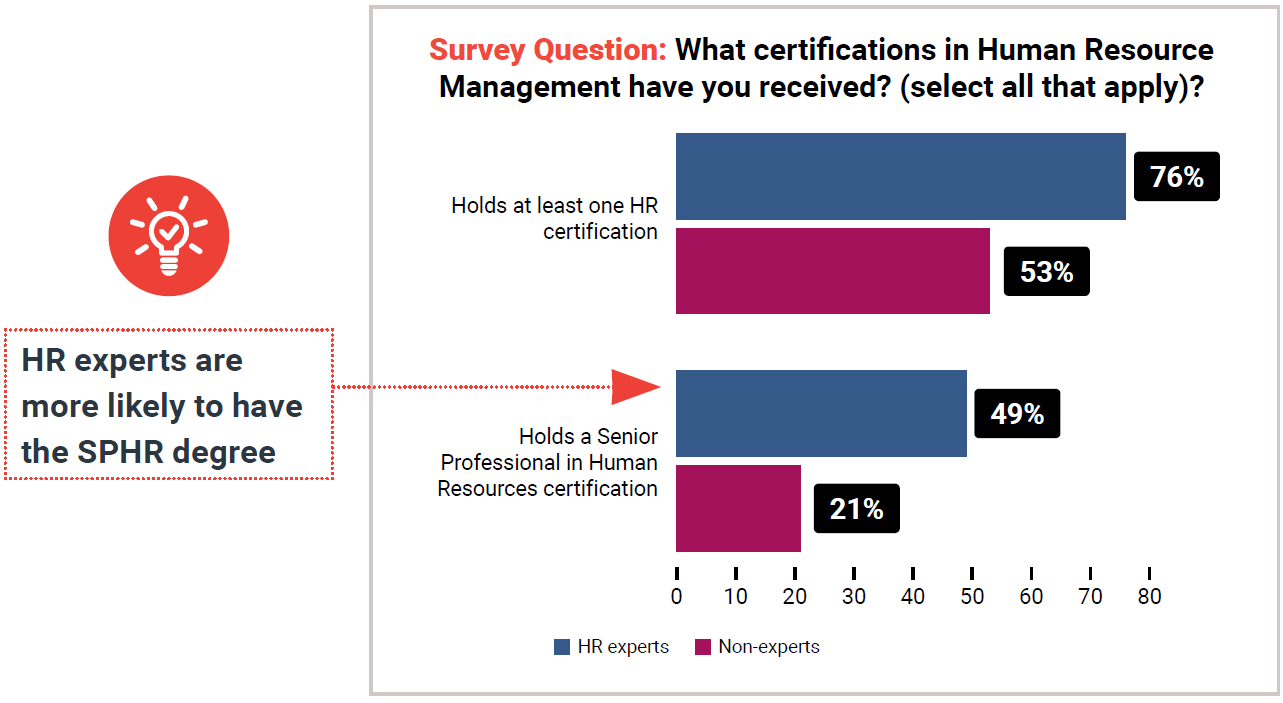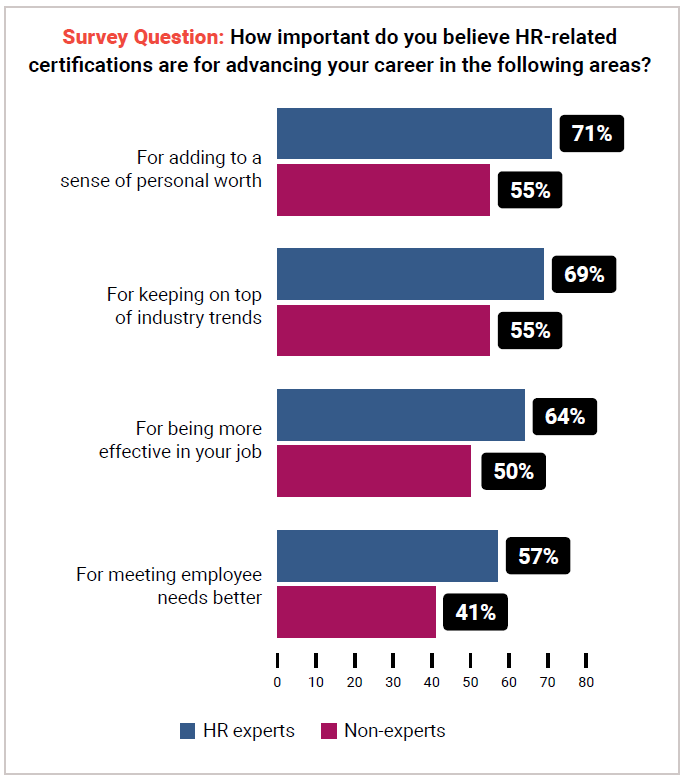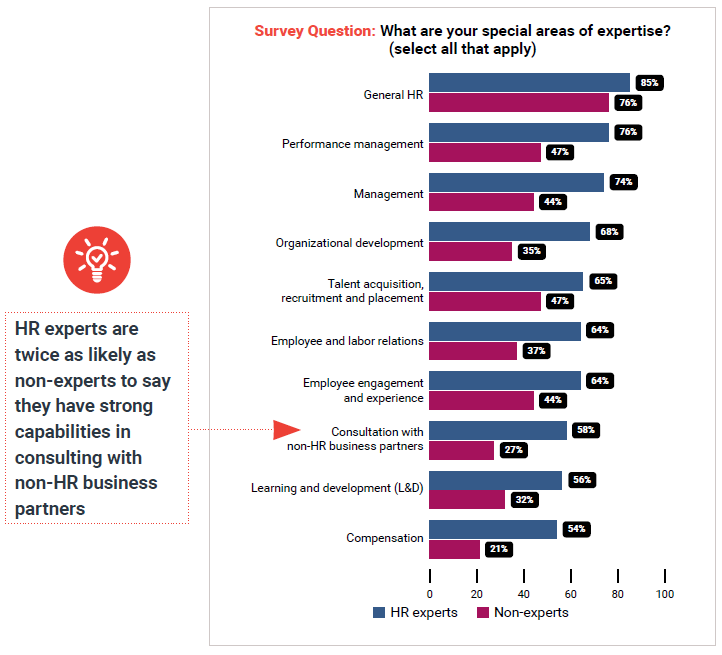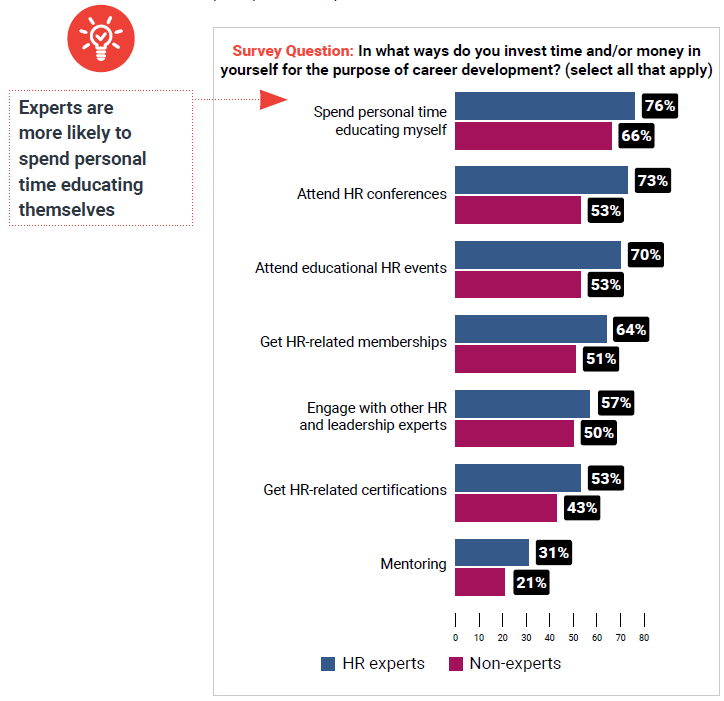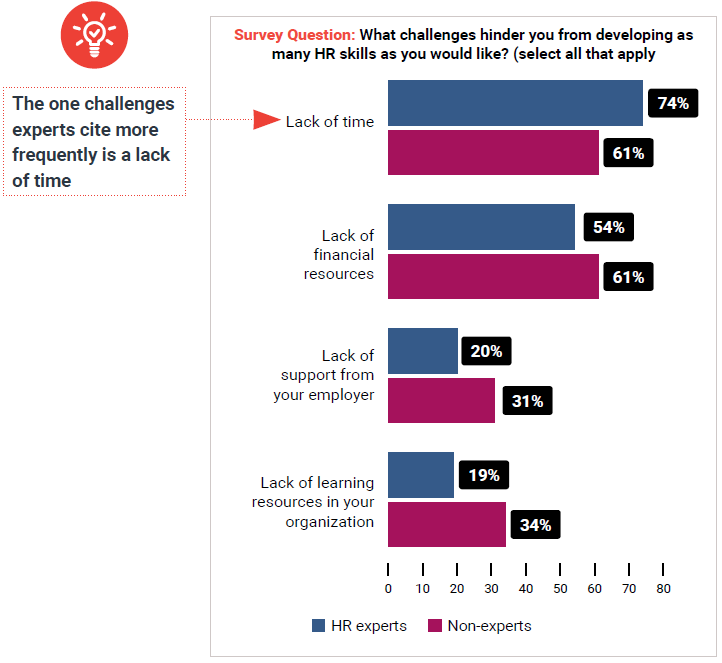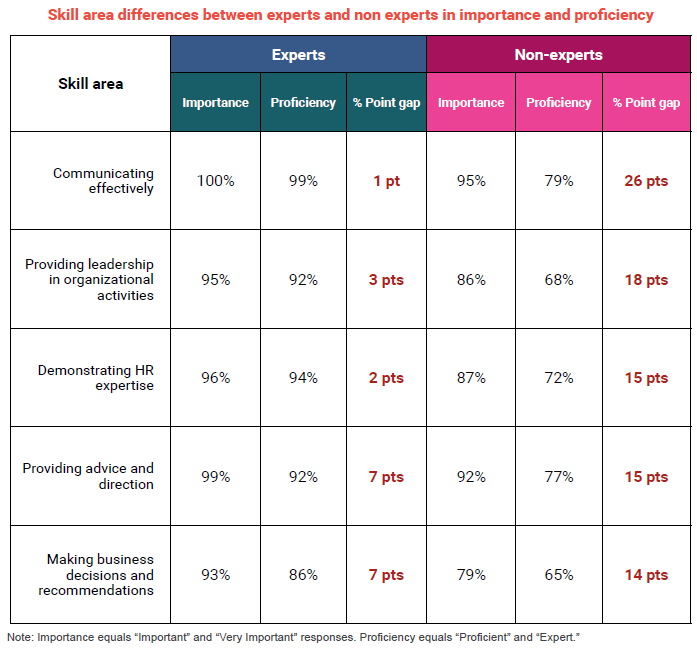One major goal of our 2021 study was not only to look at what HR professionals are doing to enhance their skills but to also gauge what makes a real difference in terms of their own professional performance.

We divided our sample in two cohorts:
- HR experts: Those who answered the question, “How would you rate your own overall capability in your current role?” as “expert.”
- Non-experts: Those who answered the question,” How would you rate your own overall capability in your current role?” as “advanced beginner,” “competent," or “proficient.”
HR experts are more likely to have a master’s degree
HR professionals with a post-graduate degree are more likely than those without advanced degrees to see themselves as experts. This is especially true for master’s degrees, where 41% of the experts report having this degree versus 32% of non-experts. While these are selfassessments, those HR professionals with post-graduate education do see themselves as more competent in their roles. A master’s degree may be a good option for HR professionals wising to develop greater expertise. Many master’s programs can be done online and are designed to appeal to those with full-time jobs.
HR experts are more likely to hold at least one certification
Just over three-quarters of HR experts hold one or more certifications, compared to just over half of the non-experts. While this does not imply cause and effect, it is reasonable to conclude that certifications are associated with better HR performance. One possible reason is that experts are more likely than non-experts to receive organizational funding for their certifications (60% vs. 46%).
The experts are also over twice as likely to hold a Senior Professional in Human Resources (SPHR) certification (49%) compare to their non-expert counterparts (21%). Generally speaking, the senior-level certifications focus more on the strategic and policy-making aspects of HR management whereas the entry-level certifications deal more with fundamentals of various talent management systems and their implementation.
Experts are more likely than nonexperts to say certfication is important for job effectiveness
As we note earlier, the average respondent is more likely to cite career opportunities as opposed to better job effectiveness among the reasons to get an HR certification. HR experts, however, are considerably more likely than non-experts to cite factors such as staying on top of industry trends, meeting employee needs better, and “being more effective in your job.” In short, they are more likely to view certification as a way to do their jobs better as opposed to just “getting ahead” in their careers.
Experts are more likely than nonexperts to have special expertise in more areas
HR experts are more likely to indicate they possess specific capabilities across a wide variety of HR specialities. For example, 76% of the experts indicate performance management as a special area of expertise versus 47% on the non-experts. Similary, 68% of the experts indicate organizational development (OD) as a special area of expertise versus 35% of the non-experts.
HR experts are more likely to invest time and/or money in developing their careers
Experts are more likely than non-experts to invest time and money in their own careers. For example, 70% of experts say they attend educational HR events, whereas only 53% of non-experts do. It appears that investment in one’s career development is highly related to perceptions of expertise.
Experts are less likely to experience challenges that hinder their development
In most areas, experts see themselves as facing fewer hindrances to developing their HR skills. This is especially true in key areas such as lack of employer support and lack of learning resources in their organizations. But there is one area where experts are more likely to say they face challenges: lack of time.
Experts tend to have smaller skills gaps than their non-expert counterparts
When we evaluated both cohorts in terms of the importance they attach to HR skills and their capabilities in those skills, we discovered two things. First, experts are more likely to say skill areas are very important to their jobs. Second, they are more likely to rate themselves as highly capable as well, which typically leads to narrower skills gaps.
Among non-expert HR professionals, the largest gap is in the area of communicating effectively, which is also the skill viewed as most important among all respondents.
